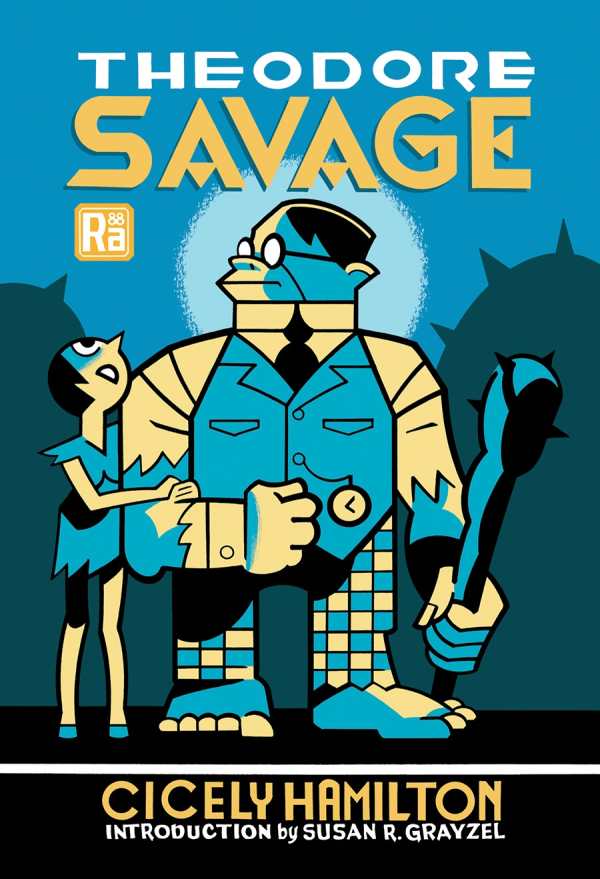Theodore Savage
First published in 1922, Cicely Hamilton’s science fiction novel Theodore Savage follows English society’s descent into savagery after a war wipes out its civilization.
Theodore Savage is a model of a modern middle-class bureaucrat. He envisions a conventional future, with a wife, children, and fine dining. When a small, upstart country threatens war, many men dismiss the possibility. But science and war cannot coexist; one must obliterate the other. And so it does: civilization comes to an abrupt end, ushering in a world of barbarism and cutthroat competition for the sparse resources that remain. Fate throws Theodore a woman who becomes his wife, and the two of them are permitted to join a community that perpetuates willful ignorance of science. Theodore lives to be the last survivor of the generation that lived before The Ruin; he is both revered and feared.
The writing is brilliant, nuanced, and deep. No aspect of the hellish aftermath of scientific warfare is unexplored. The decay of etiquette and of edifices is covered; so is the speedy collapse of the law and the slow acceptance of a desperate existence. Theodore himself undergoes a rapid transformation from a typical office worker to a brute who thinks nothing of cudgeling his wife. The limited self-awareness of his pre-Ruin years deepens as he adjusts to the idea that civilization as he knew it is gone for good. As a father, he marvels at his children, whose belief in the utter evil of scientific achievement is unquestioned. His story lays bare the peripheral nature of women’s places in society: herein, their lives are without agency and often purposeless.
Written in the Interwar Period, Theodore Savage is a terrifying and prescient science fiction novel that’s unflinching in its portrayal of the fragile scaffolding that supports “civilized” society.
Reviewed by
Randi Hacker
Disclosure: This article is not an endorsement, but a review. The publisher of this book provided free copies of the book to have their book reviewed by a professional reviewer. No fee was paid by the publisher for this review. Foreword Reviews only recommends books that we love. Foreword Magazine, Inc. is disclosing this in accordance with the Federal Trade Commission’s 16 CFR, Part 255.

